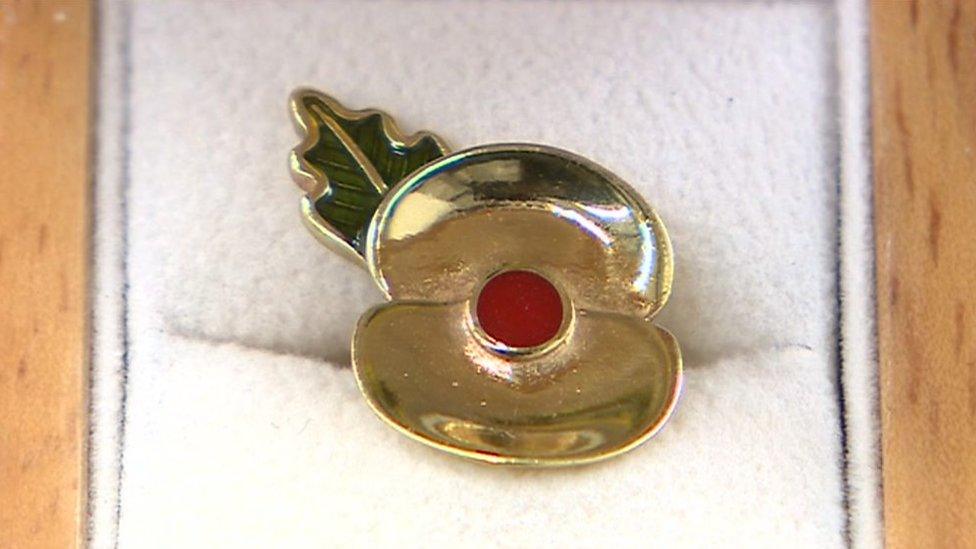Relatives remember Passchendaele on social media
- Published
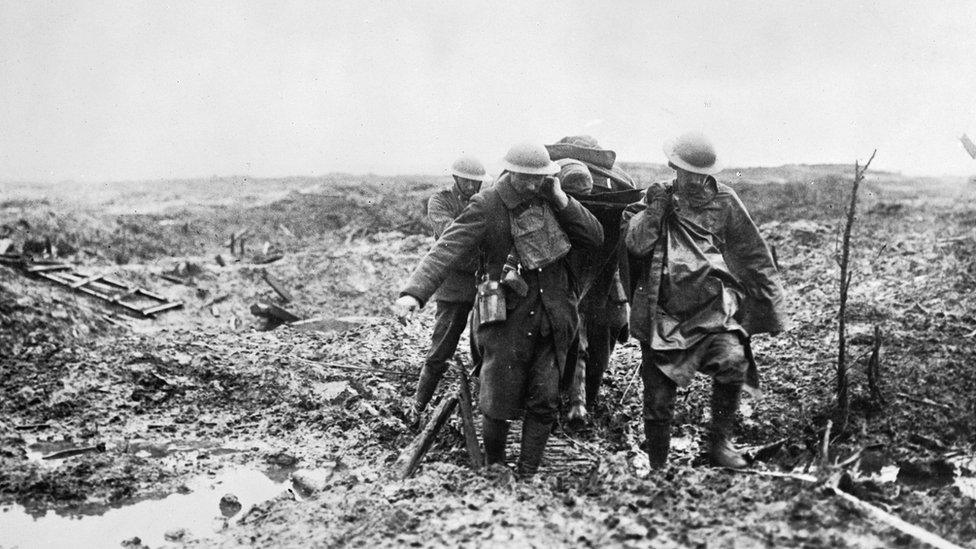
The centenary of the the Battle of Passchendale has been marked by those on social media with tributes to family who fought and died at Passchendale.
The Battle, also known as the Third Battle of Ypres, lasted from 31 July until November 1917, and led to the death, disappearance or wounding of 500,000 Allied and German soldiers.
Colonel Richard Kemp, the former British army commander in Afghanistan, shared his tribute to his great uncle Second lieutenant Philip Duncan, external, who was killed in the battle.
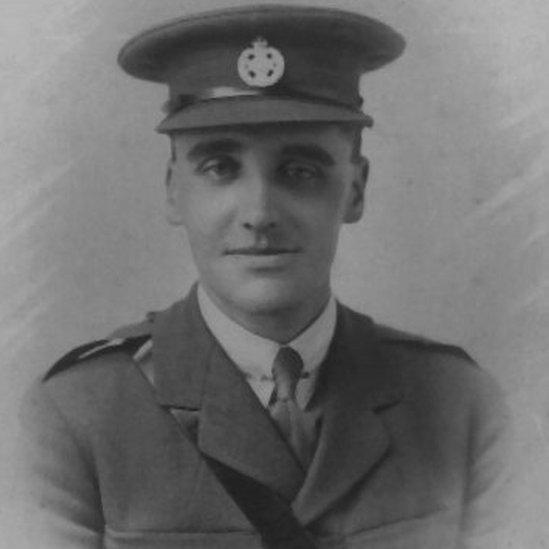
Col Richard Kemp's great uncle 2nd Lt Philip Duncan was killed in the battle
2nd Lt Philip Duncan was killed in action near Poelcapelle in Belgium during the Second Battle of Passchendaele on 30 October 1917 at the age of 26.
He died leading his men in battle just 21 days after joining his battalion on the Western Front.
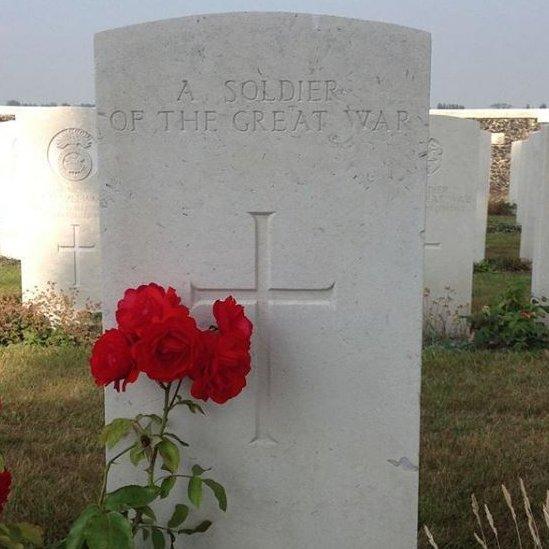
Matt Pitcher shared this image in remembrance of his great-grandfather
Matt Pitcher remembered his great-grandfather, external, Sergeant William John Timbley, fought in the battle and survived to tell his story.
Matt told the BBC his great-grandfather was a career solider with the 1st Battalion Grenadier Guards. He turned 38 a month before the first battle of Passchendaele and saw action in the Boesinghe sector in Poelcapelle.
Before he fought in the battle, he was one of just 200 men who survived the first Battle of Ypres in 1914. After the war, he didn't speak of his time in the army.
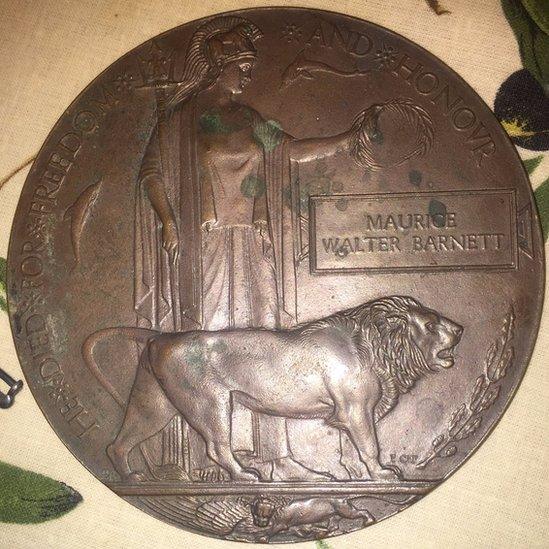
Sam Barnett shared this image of his great-grandfather's memorial plaque
Sam Barnett's also posted about his great-grandfather, external, Private Maurice Walter Barnett, who was killed in the opening attack of the battle on 31 July 1917.
Private Barnett served in the 12th Battalion Royal Sussex Regiment after a spell at the 9th Battalion. "It is hard to imagine what he went through, surviving Boar's Head and the Battle of the Somme," said Sam.
"It's easy for us to think of the casualties as just numbers of soldiers but, to Walter, they would have been his local shopkeepers, neighbours, and friends."
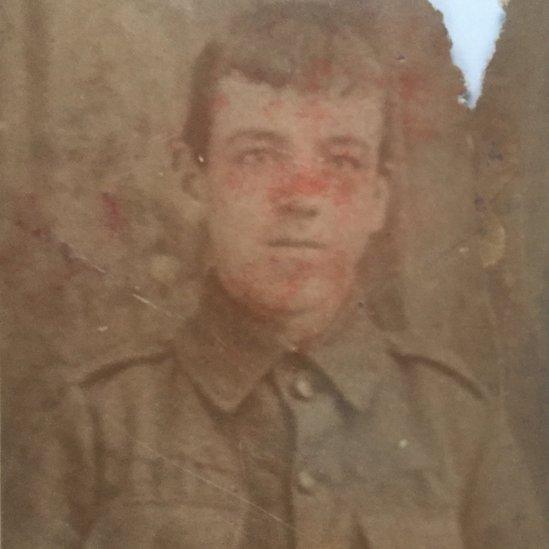
Russell Craig's great uncle was killed in the battle
Russell Craig tweeted an image in remembrance of his great uncle, external, Private James Kelly, who was killed in the battle on 16 August 1917.
Kelly was born in Newcastle-upon-Tyne in 1897. He attempted to sign up for service with local military units, but he was rejected so he went to Randalstown in Ireland to enlist with the Royal Inniskilling Fusiliers.
His body was never recovered. His name is commemorated in Tyne Cot Cemetery alongside 35,000 other missing soldiers.
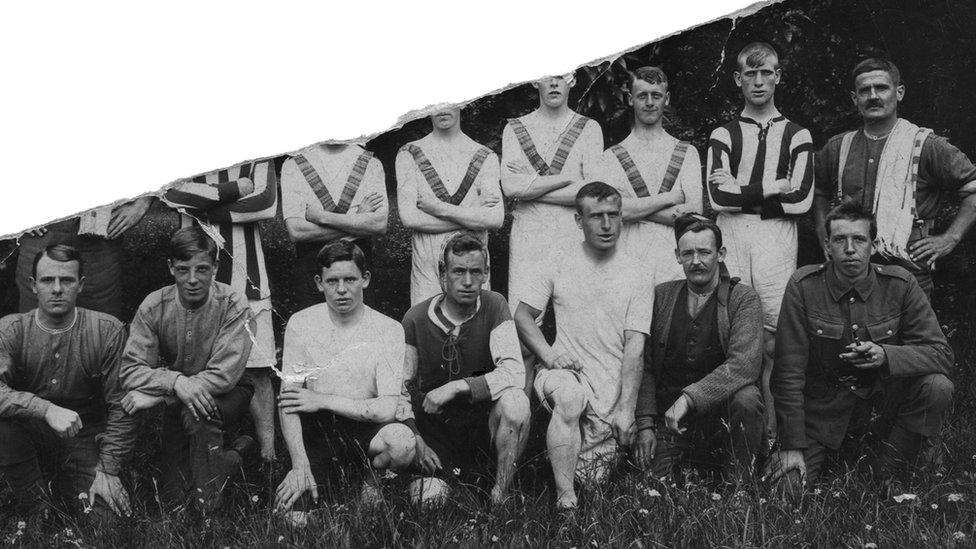
Richardson Flinn, in front row and centre, survived the battle
Paul Brown shared the story of his great-grandfather, Richardson Robson Flinn. He served with the Northumberland Fusiliers Labour Corps in 1914, then aged 22.
He was gassed during fighting in 1915 and recuperated in Britain before going back to the frontline at Passchendaele.
"Richardson made it almost to the German lines before being felled by gunfire, and lay wounded in a shell hole," said Paul.
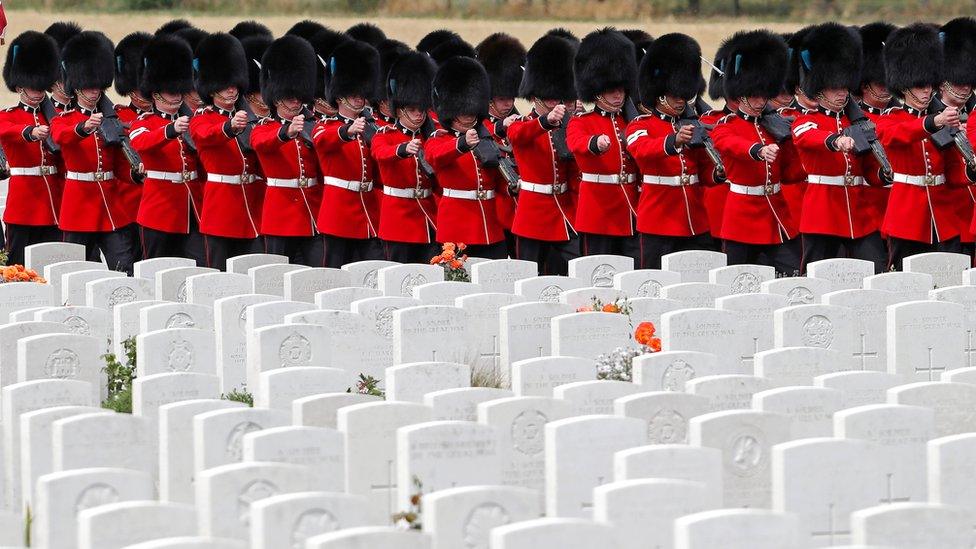
Members of the Irish Guard marched in the Tyne Cot cemetery to mark the centenary
"Once the initial chaos had subsided, German officers emerged waving red cross flags. One German gave Richardson some water from his canteen. Eventually, the wounded from both sides were evacuated.
"Richardson was discharged in December 1917 with a disability shot wound, although it was the gas that had done the worst damage.
"He returned home, but never fully recovered his health, and died young. Unfortunately, none of his living relatives ever got the chance to know him."
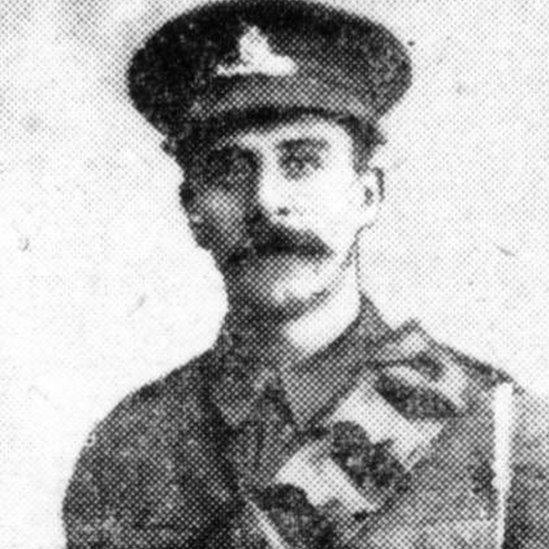
Gunner William Potterton, of the Royal Field Artillery, was killed in the battle
Twitter user @DaveVForce shared his memory of his distant cousin, external who was killed in the battle.
Gunner William Potterton enlisted for service on 11 July 1916 and served with the 72nd battery Royal Field Artillery.
He was killed in action on 19 October 1917. He has no known grave and his memory is also commemorated at the Tyne Cot Cemetery.
Complied by Paul Harrison, UGC and Social news team
- Published30 July 2017
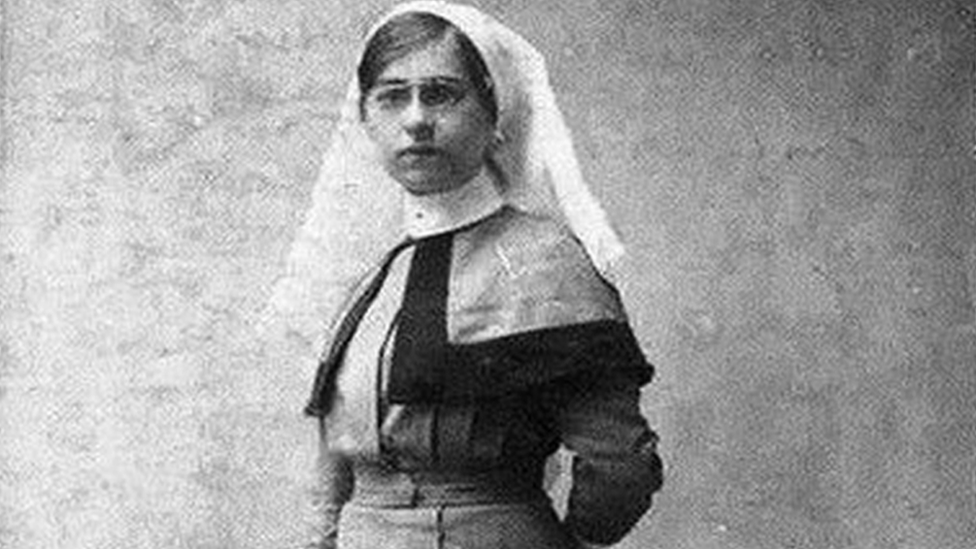
- Published21 July 2017

- Published12 July 2017
